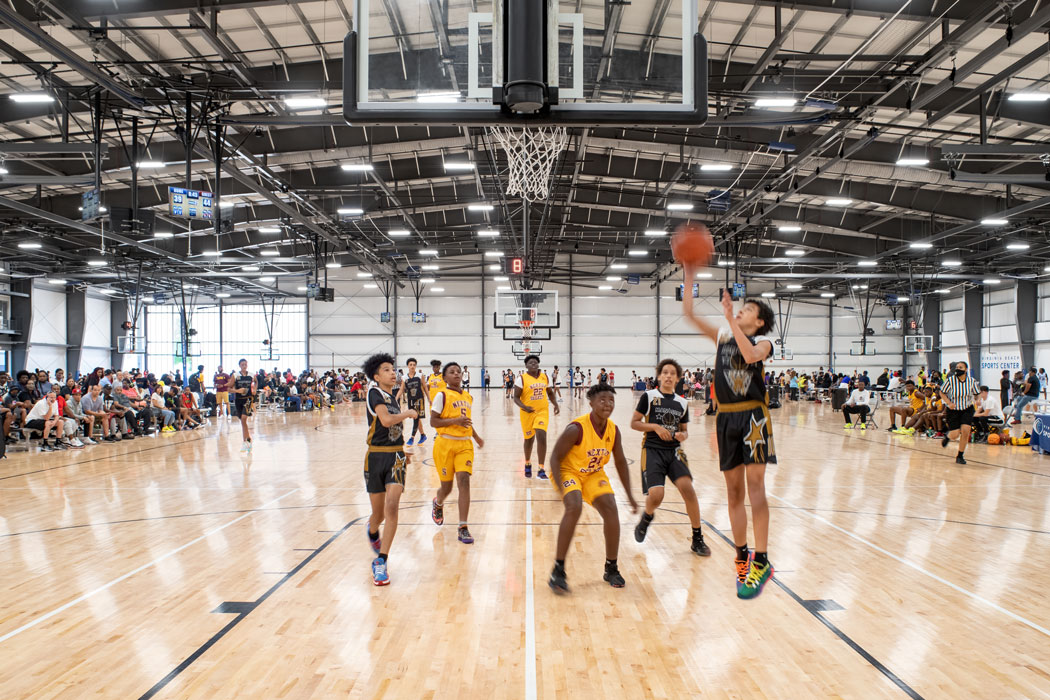Can You Play Sports with a Meniscus Tear?

A meniscus tear is one of the most common knee injuries among athletes and active individuals in Virginia and beyond. The meniscus is a C-shaped piece of cartilage that acts as a cushion between your thighbone and shinbone. When torn, it can cause pain, swelling, and limited mobility. But does this mean your athletic pursuits must come to a halt? Not necessarily.
This comprehensive guide will help you understand whether you can safely play sports with a meniscus tear, which activities are recommended, and which Virginia rehabilitation facilities can assist in your recovery journey.
Quick Facts About Meniscus Tears
- Meniscus tears affect approximately 61 per 100,000 people annually
- They're most common in contact sports and activities with sudden turns and pivoting
- Severity ranges from minor tears to complete ruptures
- Without proper treatment, meniscus tears can lead to long-term knee problems
- With appropriate care and rehabilitation, many athletes return to their sport
Understanding Your Meniscus Tear
Before determining if you can play sports with a meniscus tear, it's crucial to understand the nature and severity of your injury. Meniscus tears are classified into several types:
Types of Meniscus Tears
- Radial Tear: Extends from the inner edge of the meniscus toward the outer edge
- Horizontal Tear: Splits the meniscus into upper and lower halves
- Longitudinal Tear: Runs parallel to the outer edge of the meniscus
- Flap Tear: Involves a small segment that can catch in the joint
- Complex Tear: Combines multiple tear patterns
- Degenerative Tear: Occurs due to wear and tear over time, common in older adults
The location of the tear also matters significantly. The meniscus has two zones:
- Red Zone (Outer Third): Has good blood supply and better healing potential
- White Zone (Inner Two-Thirds): Lacks blood supply and typically doesn't heal well on its own
Important Notice
This article provides general information and is not a substitute for professional medical advice. Always consult with a healthcare provider before returning to sports after a meniscus tear.
Can You Play Sports with a Meniscus Tear?
The answer depends on several factors:
Factors That Determine If You Can Play Sports
- Severity of the tear: Minor tears may allow for continued activity with proper management
- Location of the tear: Tears in the red zone have better healing potential
- Symptoms you're experiencing: Pain, swelling, and instability levels matter
- Type of sport: Low-impact vs. high-impact activities
- Your overall health and fitness: Strong muscles around the knee provide better support
- Treatment received: Whether you've had surgery, physical therapy, or other interventions
Many athletes can return to sports after a meniscus tear with proper treatment and rehabilitation. However, continuing to play with an untreated tear could lead to further damage, chronic pain, and earlier onset of arthritis.
Treatment Options in Virginia
Virginia offers excellent medical facilities for treating meniscus tears. Your treatment plan will depend on the nature of your injury and may include:
Conservative Treatment
For minor tears, especially in the red zone, non-surgical approaches may be sufficient:
- RICE protocol (Rest, Ice, Compression, Elevation)
- Anti-inflammatory medications
- Physical therapy to strengthen surrounding muscles
- Activity modification
- Bracing for stability
Surgical Options
More severe tears may require surgical intervention:
- Meniscus Repair: Stitching the torn pieces together (preferred for tears in the red zone)
- Partial Meniscectomy: Removing the damaged portion of the meniscus
- Total Meniscectomy: Removing the entire meniscus (less common now)
Rehabilitation
After treatment, a structured rehabilitation program is essential:
- Progressive physical therapy
- Strength and flexibility exercises
- Balance and proprioception training
- Sport-specific exercises
- Gradual return to activity
Recommended Sports After a Meniscus Tear
After appropriate treatment and rehabilitation, you may be able to participate in certain sports. Here are activities generally considered safer for those recovering from meniscus tears:
Swimming
Low-impact, excellent for rehabilitation
Cycling
Low-impact, strengthens quadriceps
Walking
Gentle, controllable exercise
Weight Training
With proper form and lighter weights
Table Tennis
Limited pivoting, controlled movements
Golf
With proper swing mechanics
Sports to Approach with Caution or Avoid
Some activities pose a higher risk for re-injury or symptom aggravation:
Basketball
High-impact with jumping and pivoting
Soccer
Involves cutting and sudden direction changes
Football
Contact sport with high injury risk
Tennis
Quick starts/stops and lateral movements
Top Rehabilitation Facilities in Virginia
Virginia offers exceptional sports medicine and rehabilitation centers where you can receive treatment for a meniscus tear:
UVA Sports Medicine Center
Location: Charlottesville, VA
Specialties: Comprehensive sports medicine, orthopedic surgery, physical therapy
The UVA Sports Medicine Center provides cutting-edge treatments for meniscus tears, including advanced arthroscopic procedures and personalized rehabilitation programs designed by specialists who work with collegiate athletes.
Learn MoreVirginia Commonwealth University Sports Medicine
Location: Richmond, VA
Specialties: Advanced imaging, minimally invasive surgeries, comprehensive rehabilitation
VCU Sports Medicine offers state-of-the-art diagnostic tools and treatment options for meniscus injuries, with rehabilitation programs specifically designed for athletes looking to return to their sport safely.
Learn MoreInova Sports Medicine
Location: Fairfax, VA
Specialties: Sports-specific rehabilitation, advanced surgical techniques
Inova's team of fellowship-trained sports medicine specialists offers comprehensive care for meniscus injuries with a focus on returning athletes to their pre-injury level of performance through customized treatment plans.
Learn MoreVirginia Beach Sports Medicine & Orthopaedic Center
Location: Virginia Beach, VA
Specialties: Knee arthroscopy, sports rehabilitation, injury prevention
This center provides specialized care for meniscus tears with a focus on both surgical and non-surgical treatment options, including advanced rehabilitation techniques for athletes of all levels.
Learn MoreTips for Safe Return to Sports
If you're eager to get back to your athletic pursuits after a meniscus tear, consider these guidelines:
Before Returning to Sports
- Complete your full rehabilitation program as prescribed
- Ensure you have full range of motion in your knee
- Regain strength comparable to your uninjured leg
- Be able to perform sport-specific movements without pain
- Get clearance from your healthcare provider
After Returning to Sports
- Use appropriate knee support if recommended (brace, sleeve, tape)
- Start with reduced intensity and duration
- Gradually increase activity levels
- Listen to your body and rest when needed
- Continue strengthening exercises
- Apply ice after activity if there's any swelling or discomfort
- Maintain proper form and technique
Long-Term Joint Health
Even after successful treatment and rehabilitation, it's important to maintain good knee health:
- Maintain a healthy weight to reduce stress on your knees
- Choose activities that minimize knee impact when possible
- Wear proper footwear for your sport
- Keep the muscles around your knees strong
- Consider cross-training to reduce repetitive stress
When to Seek Medical Attention
Even if you've been cleared to play sports with a meniscus tear, be vigilant for signs that you need to see a doctor:
Warning Signs
- Increased pain or swelling after activity
- Catching or locking sensations in your knee
- Decreased range of motion
- Instability or giving way of the knee
- Pain that interferes with daily activities
- Any new injury to the knee
Conclusion
A meniscus tear doesn't necessarily mean the end of your athletic journey. With proper diagnosis, treatment, and rehabilitation—particularly at Virginia's excellent sports medicine facilities—many athletes successfully return to their favorite activities.
The key is to work closely with healthcare providers, follow rehabilitation protocols diligently, and make smart choices about which sports and activities are appropriate for your specific situation. By taking a measured, progressive approach to returning to sports, you can protect your knee health while still enjoying an active lifestyle.
Remember that every meniscus tear is unique, and your return to sports should be guided by medical professionals who understand your specific injury, goals, and overall health.
References:
- American Academy of Orthopaedic Surgeons. "Meniscus Tears." OrthoInfo, 2020.
- Mayo Clinic. "Meniscus Tears: Diagnosis and Treatment." 2023.
- Journal of Sports Medicine. "Return to Play After Meniscus Repair." 2022.
- Virginia Sports Medicine Association. "Guidelines for Athletic Participation After Knee Injuries." 2024.
